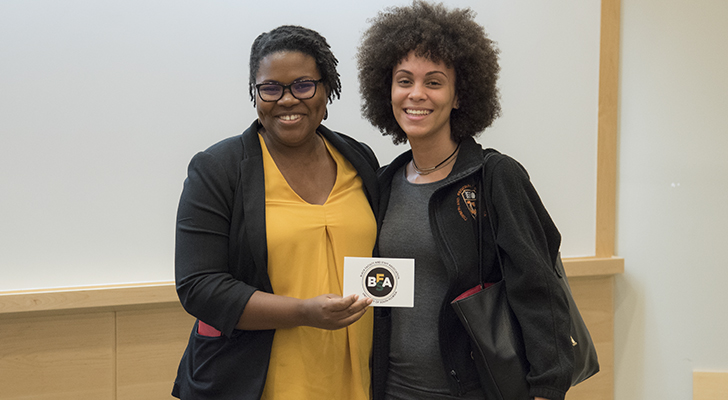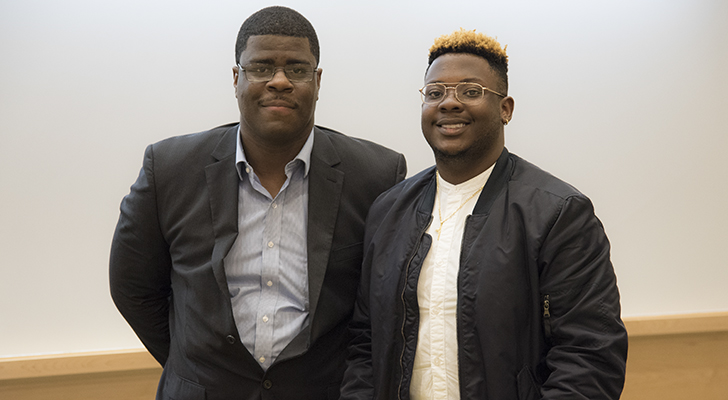It’s not always who you know, it’s who knows you. This turn of phrase was one of several helpful thoughts and pieces of advice shared with some four dozen students gathered in the Patel Center Nov. 29.
The students were attending the second annual Mentor/Mentee Match program offered by the Black Faculty and Staff Association, a program that connects students with mentors who provide the support and advice students need to ensure a smooth pathway to graduation. The mentoring relationships offer students networking opportunities, career advice and a sense of greater accountability for their own academic success, said Gene Murdock, coordinator of USF Faculty Services Administrator, assistant to the vice provost for Human Resources and Space Planning, and president of BFSA at USF.
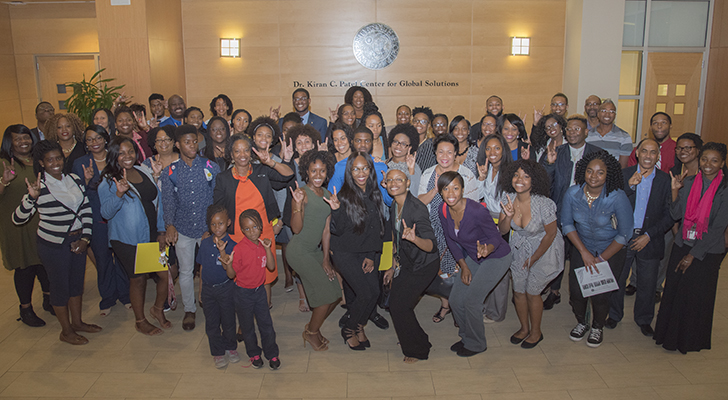
“Mentor relationships can directly contribute to improving student retention rates and increasing the number of students entering graduate programs,” Murdock said. “They also help students advance through school at a faster pace, be more productive, and be more responsible for the choices they make.”
Active on the USF campus for nearly 45 years, the BFSA was founded with a mission to support both black faculty and staff members as they navigate academia, seek tenure and promotion, and excel in their careers, and black students as they progress along their college journeys and define their future careers.
Among many initiatives, BFSA’s annual mentor/mentee match event is one the group’s highlights, Murdock. In addressing the students at the Mentor/Mentee Match, Murdock reminded them of the two-way commitment at the heart of this program.
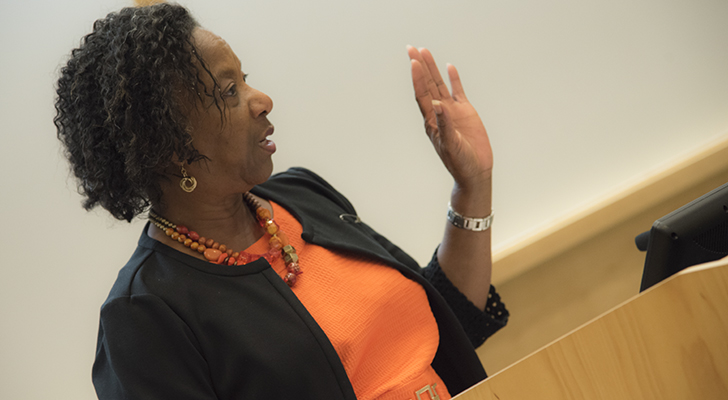
“I hope you see this initiative as a partnership,” she said. “We are partnering with you to make sure you have success. The ultimate goal here is your graduation and, hopefully, graduate school. We are here as a resource. There is success in this program, but it’s what you put into it.”
One example of that success is found in Stephy Oge, a junior at USF. Oge landed a highly selective internship (she was one of 25 chosen across the country) that included a four-week leadership program in the iSchool Inclusion Institute in Pittsburgh, PA.
“Thanks to my mentor Dr. Elizabeth Metzger, I heard about the program and was able to pull my application together,” Oge said.
In offering advice for students considering the BFSA mentoring program, Oge doesn’t hesitate to say: “You will get as much out of it as you put in – you can’t simply expect to receive.”
The impact is also felt on the mentor side of the equation.
"The one-on-one contact is invaluable for the students, but also for our faculty," said Dr. Metzger, associate professor in the College of Arts and Sciences. "We can provide a lot of service as volunteers but this mentoring program has such a direct impact for our students. It's very gratifying."
Sylvia Thomas, PhD, associate professor in the USF College of Engineering, welcomed students at the evening gathering, setting the stage for how the students should approach the mentorship, offering words of advice, and walking the students through a self-assessment exercise to prepare them for their introductions with their mentors.
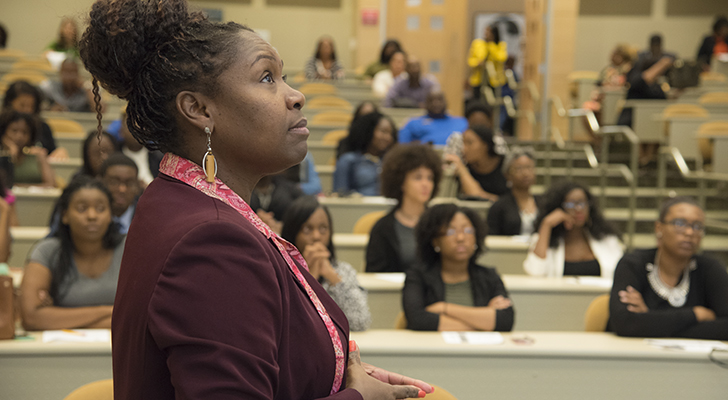
“When we talk about how you, as mentees, can help the alliance and make it more effective, we have to look at three things,” Dr. Thomas said. “Expectations, self-assessment, and career goals. And as you fill out the questionnaire, some of these questions will be very intuitive and some you will have to think about. There are no right or wrong answers, so don’t be afraid to dream. Just keep in mind that you’re getting ready to meet your mentor. This is going to prep you for your conversation.”
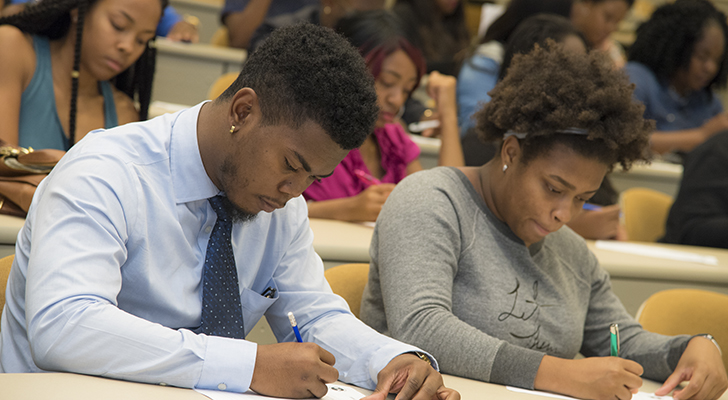
“You have to be invested in yourself,” Dr. Thomas said, in closing the assessment exercise. “This is an enabling alliance that allows continuous feedback and continuous growth. And don’t be afraid to ask for help.”
Then, one by one, the students were paired with the faculty mentors and each duo made their way to the lobby to begin their partnership.
